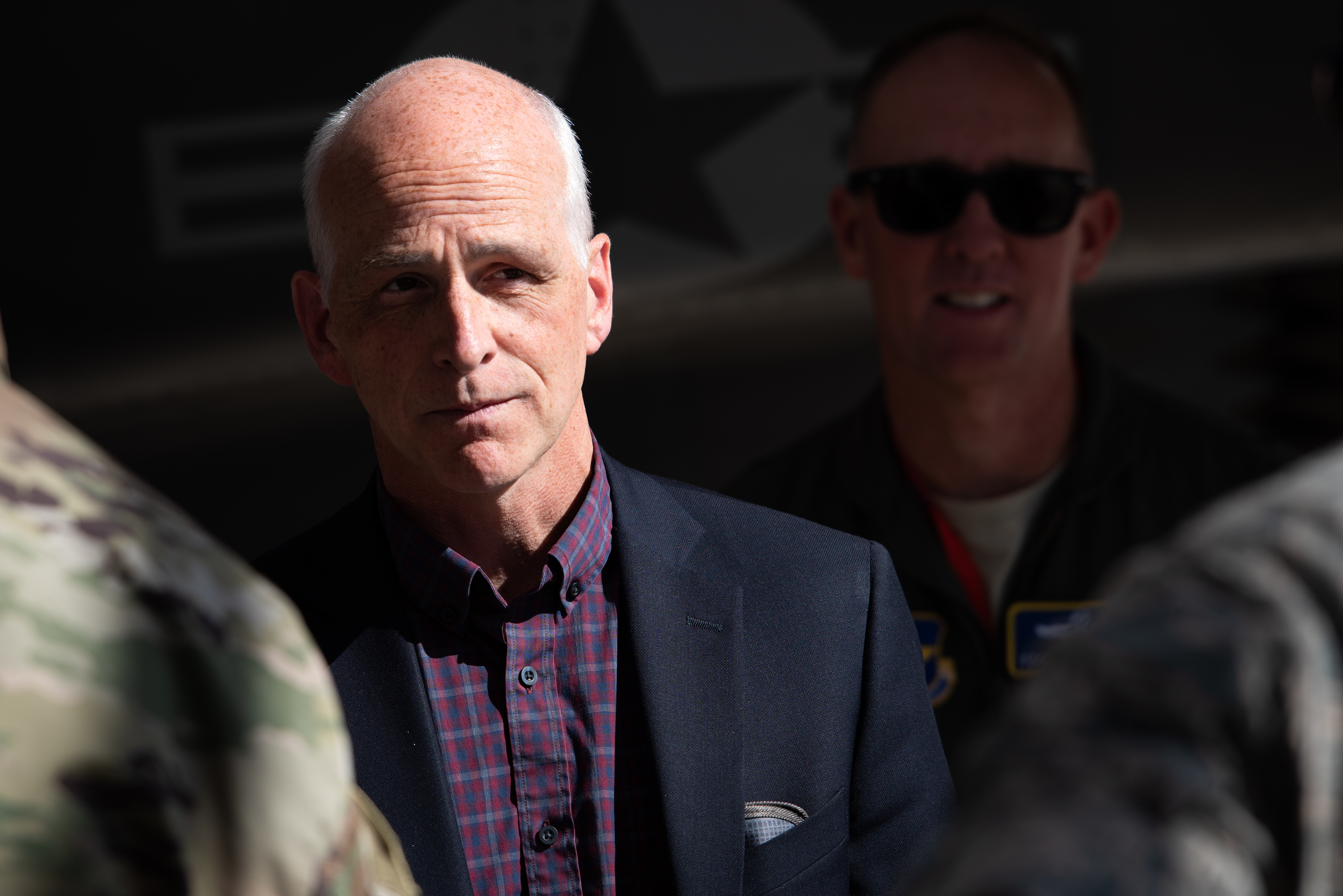
House lawmakers will return to Washington, D.C. for an override vote should President Donald Trump veto the annual defense policy legislation, the chairman of the House Armed Services Committee said Monday.
HASC Chairman Rep. Adam Smith (D-Wash.) in a call with reporters today emphasized the bipartisanship of the Fiscal Year 2021 National Defense Authorization Act conference report and said he has spoken with Republican lawmakers about the votes needed to override a potential presidential veto.
“There are really no other possibilities. And if the president vetoes it, we will come back to vote to override,” Smith said. “It’s not great … timing, traveling during a pandemic and all that. We do have the proxy voting here. But yes, if the president vetoes it, we will come back and vote to override.”
Smith noted Senate Armed Services Committee Chairman Sen. Jim Inhofe’s (R-Okla.) support for the bill and said he’s had discussions with both HASC Ranking Member Rep. Mac Thornberry (R-Texas) and Rep. Mike Rogers (R-Ala.), who will serve as the top Republican on the panel in the next Congress, about votes required to override a veto.
“We’ve got troops’ bonuses that will terminate. We’ve got [military construction] projects that will terminate. We’ve got land that the military will no longer be able to use for training,” Smith said. “We have numerous other provisions in this bill that are crucial. We can’t not come back and vote to override. So the timing on that will depend on a lot of things.”
While the House and Senate last week announced the two chambers had reached a deal for a conference version of the annual policy bill that works out the differences between their two versions of the legislation, Trump had threatened to veto the legislation if it did not feature a repeal of a technology provision known as Section 230. The law protects companies like Facebook and Twitter from being legally liable for content posted by their users.
Lawmakers in both parties say the provision is outside the scope of the annual defense policy bill. Inhofe last week said that, while he also believes Congress should repeal Section 230, it should not do so in the defense policy bill.
“The president knows that I agree with him 100 percent on the need for a full repeal of Section 230. I’ve made that clear [publicly] as well. It’s unfortunate that Members of Congress on both sides of the aisle disagree with the need for a full repeal – but, because of that, it is impossible to add a repeal of Section 230 to the defense authorization bill,” Inhofe said in a statement. “The only other option would mean that for the first time in 60 years, we would not have an NDAA. Without an NDAA, our troops would not get flight pay. They wouldn’t get hazard pay or any other specialty pay that requires annual authorization for our service members overseas get what they need.”
Smith also shot down the notion of a “skinny” policy bill and said pushing passage of the National Defense Authorization Act to after the new year would be problematic because a new Congress begins in January.
“We will never pass a skinny bill. That’s not an option. You know, doing it next year – the problem is, as I’ve said, this is the end of this Congress,” Smith said. “You would have to restart the entire process and go through committee. And maybe everyone says, ‘okay.’ And they don’t offer amendments and they don’t try – yeah, that would be extraordinarily difficult.”
The House is slated to take up the policy conference bill this week before it heads to the Senate.
During the call, Smith confirmed that President-elect Joe Biden’s team has spoken with him about who to tap as the next defense secretary. Smith voiced his support for former Under Secretary of Defense for Policy Michele Flournoy, arguing she is “uniquely qualified” for the job and to tackle the policy issues that lay ahead for the next administration.
“That does not mean that she’s the only person that could do the job, when there are a lot of capable people that could more than adequately fill the position. But I think Michele Flournoy is uniquely qualified. Having her experience as undersecretary of policy, the work that she has done since,” he said.
“Because I feel very strongly that – in addition to the issue I raised about the forever wars and how are we going to fight extremism going forward – there are two other huge policy shifts that are going to have to be properly navigated. One is, how do we confront Russia and China? What is the military role there? I don’t want to stumble into a cold war and certainly don’t want to stumble into an actual war.”
The other policy issue, Smith said, is cyber capability and pursuing the right types of weapons and systems as opposed to pushing for a larger number of platforms.
Flournoy is reportedly in the running for the position, but progressive Democrats have taken issue with her potential nomination.
The HASC chairman argued that Flournoy’s experience working in the Pentagon will help her chart a path to make changes inside the building.
“It takes a certain amount of understanding of bureaucracy in the Pentagon in order to make changes stick. Michele has that,” Smith said. “Again, it’s not to say that there aren’t other people who could fill the position well. But I think we have a clear case that she is the most qualified at this point.”





